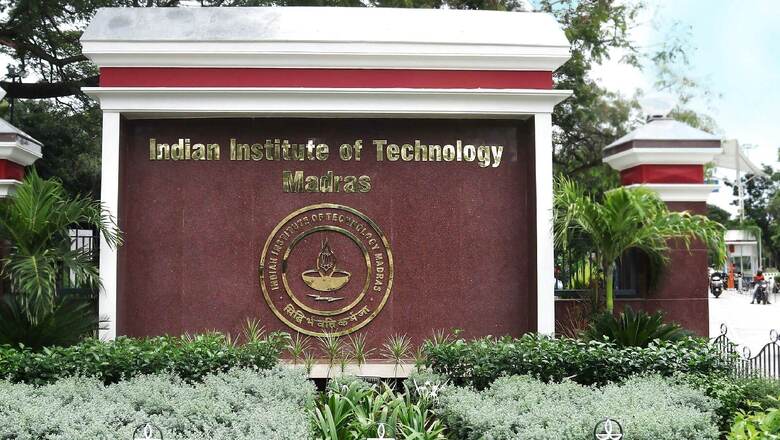
views
The Indian Institute of Technology Madras (IIT Madras) has developed an Information Technology tool to monitor and improve the health of rural Scheduled Caste (SC) communities in Chittoor district of Andhra Pradesh. The IT tool, developed using open source software, was deployed to gather detailed household-level annual health-related information.
This IT Tool was also utilized to make an objective assessment of the impact of medical treatment and dietary advice on priority health issues. The institute says this would lead to evolving an optimal rural healthcare plan based on treatment efficacy and expenses.
The project was implemented in E. Palaguttapalli SC and its adjoining hamlets, PakaJa Mandal and Pulicherla Mandal, in Chittoor district, Andhra Pradesh, which have a population of around 100 Scheduled Caste (SC) households, each having 5-6 members.
In the past, their diet consisted of mainly ragi and other millets, plenty of milk products, fish and other aquatic meat. The doctor team from SV College of Ayurveda – Harnath Chary and Dr. Gnana prasoonaamba visited the villages once in every two months and helped in effective implementation of this project.
Read | IIT Kanpur Researchers Develop Air Filters to Convert ACs Into Air Purifiers
Due to poverty, their current diet is dry and poor, devoid of dals, milk products or meat. As a result women and children are severely anaemic. Correct dietary advice by expert health practitioners has been able to alleviate the symptoms. The IIT Madras efforts were geared towards improving their health. Internet-based live interactions were organized every alternate month where special lectures on improving health were delivered.
Prof. C. Lakshmana Rao, Department of Applied Mechanics, IIT Madras, said, “In pilot villages, a detailed baseline survey and mapping of health status and health expenses using IT tools was undertaken. It was intended to address priority health issues through medical treatment and dietary advice and its monitoring using IT tools. A post-intervention survey and mapping of health status and health expenses using IT tools”
The tentative next steps include:
– Implementing a mobile application for digitizing the process and better analysis. Also, to create awareness on use of mobile applications with support of local youth volunteers.
– Initiate the customized drug discovery on par with specific diseases like anaemia and weakness.
– To regularly organize and monitor the patients as part of medical camps and encourage them in adapting healthy habits.
– To investigate the specific disease-based parameters and evaluate them for further medications and treatments.
Grameen Ayurvedic Mobile Application
In addition, the same team headed by Prof. C. Lakshmana Rao developed ‘Grameen Ayurveda mobile application,’ an innovative Android-based smart manager of a person’s total health program.
This application provides online doctor appointments, maintains patent data in digital form and it will help to track patient health status and treatment records. It takes care of the follow-up routine of patients, and patients are reminded for routine re-check if required.
Prof. C. Lakshmana Rao, Department of Applied Mechanics, IIT Madras, said, “ Grameen Ayurveda provides individualized online Ayurveda health care consultation along with knowledge of herbs that we can see every day at our homes, which helps cure the disease of its roots.”
Read all the Latest Education News here
















Comments
0 comment